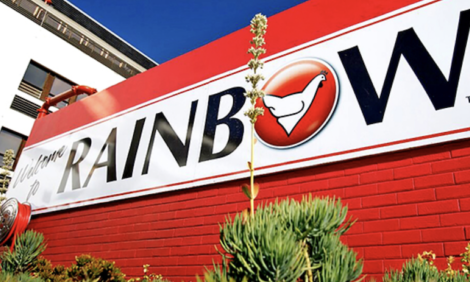



EFSA: Cautious Approval of Manure Lime Treatment
EU - The European Food Safety Authority (EFSA) judges that the treatment of dry pig or poultry manure batch-wise with quick lime and heated was effective in destroying pathogens but it warns that its opinion covers only the conditions used in this study.Following a request from the European Commission, the Panel on Biological Hazards was asked to deliver a scientific opinion on lime treatment of solid pig and poultry manure.
Regulation (EC) No 1774/2002 of the European Parliament and of the Council, laying down health rules concerning animal by-products not intended for human consumption, divides animal by-products (ABP) into three different Categories and requires them to be disposed of, recycled or used. The Regulation also provides for the possibility to approve other means of disposal and other ways to use ABP after consultation of the appropriate scientific committee (Articles 4(2)(e), 5(2)(g) and 6(2)(i)).
A European association submitted a novel process and asked the European Commission to approve it as a safe means of disposal under Article 5 (2) (g) of Regulation 1774/2002/EC, i.e. as far as Category 2 material are concerned.
The European Commission asked EFSA to i) assess the ability of the process submitted to safely dispose of Category 2 animal by-products and ii) in case the process is considered to present a risk, to advice on the risks of the use of that process and on possibilities for addressing them. After an information exchange with the applicant, it was clarified that the terms of reference of the mandate were focused only on pig and poultry solid manure treatment and that the solid pig manure consisted of dewatered manure.
The application received describes a lime treatment process for dewatered pig and solid poultry manure that could be operated at two different temperatures (60°C and 70°C). The applicant carried out full-scale trials in Belgium utilising quick lime (calcium oxide, CaO). The samples to demonstrate pathogen reduction were tested by the University of Leipzig. The applicant proposes to utilise the two possible treatments to process dewatered pig and solid poultry manure by a batch procedure for covered or uncovered stockpiles and for containers. However, only uncovered stockpiles were used in the experimental protocol to validate the pathogen reduction.
Since the experiments presented by the applicant concerned only dewatered pig and solid poultry manure, the BIOHAZ Panel assessed these treatments only for these kinds of manure and not for all types of Cat. 2 ABP.
The BIOHAZ Panel assessed the application received following the scheme proposed in the Guidelines for applications for new alternative methods of disposal or use of animal by-products, prepared jointly by the Health and Consumer Protection Directorate-General (DG-SANCO) and EFSA.
The Panel concluded that the information provided by the applicant is sufficient to show that the mixing of dewatered pig and solid poultry manure with quicklime at the requested exposure time of 30 or 60 minutes, respectively for treatment at 70°C and 60°C at pH12 meets the requirements for Agent Risk Reduction according to the EFSA 2005 opinion vis-à-vis biological risks of biogas and compost treatment standards of animal by-products. However, the applicant did not give sufficient information to ascertain that in practice the target temperatures and pH are achieved in all part of the stockpile for the sufficient time period.
It was highlighted that this assessment cannot be extended to different equipment, different types of manure and different incubation conditions (i.e. continuous process) than those used in the experimental validation.
The BIOHAZ Panel recommended that the proposed processes can be considered able to safely process dewatered pig and solid poultry manure only if certain given conditions are met. In case another mixing device than the one used in the validation is proposed, it is recommended to assess its equivalence by a simplified validation procedure based on temperature measurements at representative measuring points in the stockpile. An example of simplified validation procedure was provided in the Appendix of the opinion. In case other types of manure, methods other than stockpiles (i.e. continuous processes or containers) are proposed, it was recommended to perform a full validation experiment.
Further Reading
| - | You can view EFSA'a full report by clicking here. |








